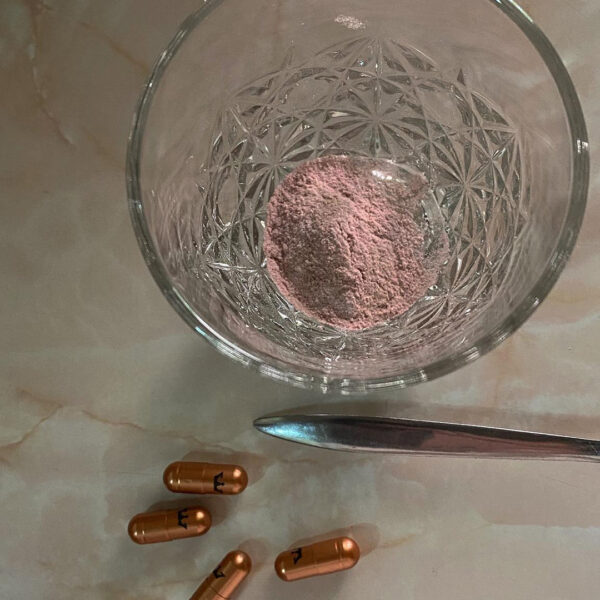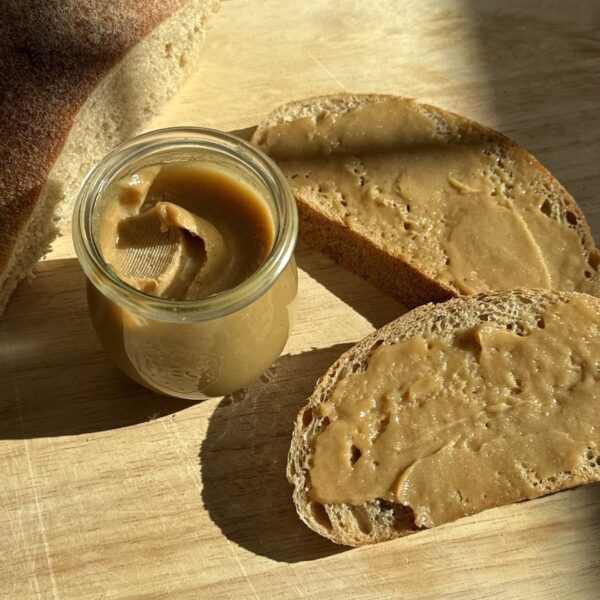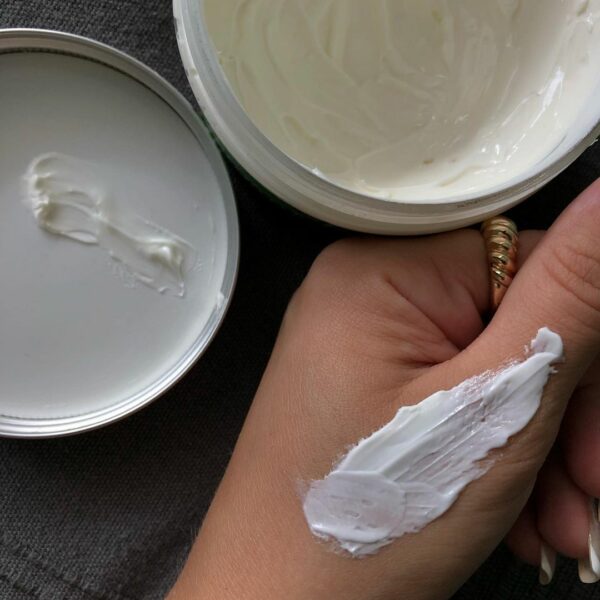We’re all too familiar with that sensation. The urgency to pee. The blocked feeling, a dull ache, followed by an unsatisfying trickle and a lingering, acidic burn. The constant discomfort that is a UTI is a dreaded experience for many and most often cannot be resolved with natural remedies. This means we need to see a doctor and take antibiotics—two things we’d really love to avoid.
The “I” in UTI is for infection, so let’s not forget that we are being infected by a foreign compound present in our bladder that should not be there. It’s typically e. coli, but can be a slew of other common pathogens.
Some are more prone to UTIs than others. While the reasons for that are relatively unknown, it may have to do with immune system strength—similar to the way some people are more prone to colds. For those who get UTIs on a frequent basis, the first thing we’d try is immune-strengthening action, like upping our intake of vitamin C, getting enough sleep, taking zinc, and eating medicinal mushrooms and foods like ginger.
We thought we’d ask Alexis May Kimble, D.O., double board-certified in gynecology and female pelvic medicine and Medical Director of Kimble Center for Pelvic Wellness, to break down the basics and the not-so basics about how to keep the burn at bay.
“Stay well-hydrated with at least 60 fluid ounces of water daily, more if time is spent outdoors, in the sun, exercising. Women who suffer from repeated UTIs have shown to decrease episodes of future infections by increasing fluids as such. This helps with sloughing off the superficial inner bladder layer where bacteria may be adherent.”
While drinking water might seem obvious, it’s important to note that frequent urination means frequent flushing, or cleansing, of our urethra. We don’t want to give the bacteria time to cultivate, so staying hydrated is great for our immune system, but the frequency of urination that goes hand-in-hand with extra fluid consumption has a very real mechanical purpose, as well.
“Avoid holding your bladder for prolonged periods to avoid urinary stasis and promote steady flow through the urinary tract. In this same vein, those who may suffer from altered anatomy such as bladder prolapse or a ‘cystocele’ may be more predisposed to higher post-residual urinary volumes and be limited in their ability to have steady urinary flow. This warrants an evaluation by a medical professional.”
In the same vein as staying hydrated to pee more frequently, well then obviously, don’t hang onto that pee longer than you absolutely have to. When drinking lots of water, make sure you’re near a bathroom.
“Maintain good perineal habits by avoiding any back-to-front movements. This includes wiping, and the order of sexual practices, as doing so could directly introduce GI bacteria to the genitourinary tract. The majority of bacteria causing UTIs in women are from the GI tract. Along this same line, those who have perineal scars, or altered anatomy from obstetrical perineal trauma, may also be more susceptible to developing UTIs.”
While this makes us feel a bit yucky, what Dr. Kimble is saying is that most UTIs are caused by our own fecal matter. By now, most of us understand that we must always wipe front to back. But we need to make sure our sexual partners are on board with our regimens as well. That means making sure their hands are washed and clean before diving on in for playtime, and if we enjoy any backdoor play, that we do so in the proper order—no back and forth.
“Sexual intercourse is known to predispose females more than males to UTIs due to the shorter urethra in females. The act of sex can facilitate the introduction of bacteria into the urinary tract. In this population, behavioral maneuvers like urinating immediately after sex (or even a prophylactic antibiotic after sex or self-start therapy, prescribed) may help prevent episodes of UTIs. For women who demonstrate repeated infections associated with sex, an evaluation is recommended before the introduction of treatment.”
While our own pee doesn’t sound very clean, again, that flushing mechanism is key here. After roughhousing our yonder bits, it’s best to clean house with a quick sweep.
Let the self-cleaning oven self-clean
“Avoid vaginal douching, as this could disrupt the natural environment and promote colonization. The bladder is not a sterile environment as was believed for many years. Instead, in more recent years, we have now recognized that a female microbiome exists. This environment also consists of protective bacteria that could be susceptible to eradication by different hygiene practices, like douching.”
We like to think douching is a long-gone thing of the past. The idea that we need to clean ourselves from the inside out, manually, is dead and gone, thank Goddess. By all means, do not purge your yoni. The bacteria present inside keeps things tidy and protected.
“Avoid spermicide as a contraceptive method. Spermicides facilitate bacterial binding to and thriving in the urinary tract by altering the feminine pH,” Dr. Kimble tells us. We realize that most women these days are not using a diaphragm as a form of contraception—however, this method is not dead. Most often, a spermicide is used in tandem with the diaphragm. Unfortunately, that is a contending culprit.
Lastly, Dr. Kimble warns that “if you experience urinary leakage or fecal seepage, consider seeking evaluation and treatment as these scenarios can facilitate ascent of bacteria up the urinary tract.” This is the sign of a much more serious, much larger problem, so seek professional treatment immediately.
The content provided in this article is provided for information purposes only and is not a substitute for professional advice and consultation, including professional medical advice and consultation; it is provided with the understanding that Poosh, LLC (“Poosh”) is not engaged in the provision or rendering of medical advice or services. The opinions and content included in the article are the views of the interviewee only, and Poosh does not endorse or recommend any such content or information, or any product or service mentioned in the article. You understand and agree that Poosh shall not be liable for any claim, loss, or damage arising out of the use of, or reliance upon any content or information in the article.
Up next, be the first to know our weekly content and sign up for our Poosh newsletter.






































